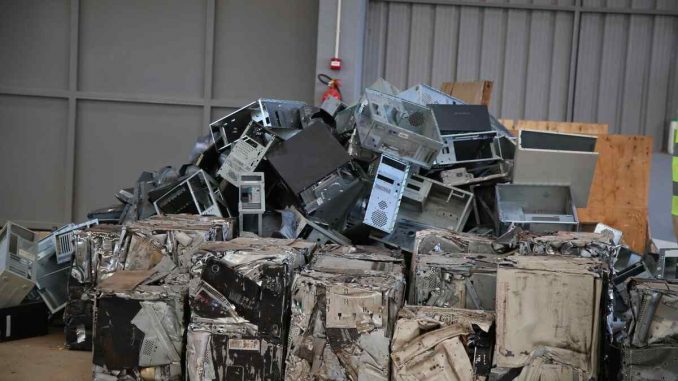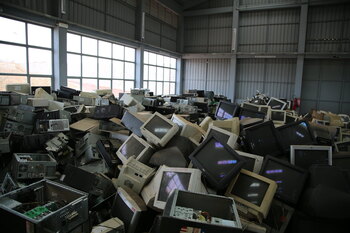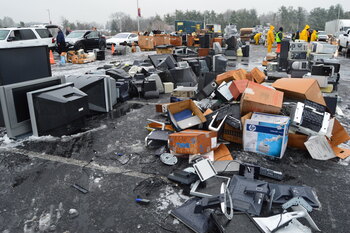
Electronic waste, or e-waste, has become a significant global environmental and health concern. With the rapid advancement of technology and the increasing demand for electronic devices, the volume of e-waste generated has skyrocketed. However, e-waste also represents a valuable resource that can be recycled and reused, reducing its environmental impact and conserving precious natural resources. In this article, we’ll explore the importance of e-waste recycling, the challenges it presents, and the solutions that can help us create a more sustainable future.
 What is E-Waste?
What is E-Waste?
E-waste refers to discarded electronic devices, such as smartphones, computers, laptops, tablets, and televisions.
These devices contain a variety of valuable materials, including metals, plastics, and glass, as well as hazardous substances like lead, mercury, and cadmium.
Improper disposal of e-waste can lead to environmental pollution and health risks, making responsible e-waste recycling essential.
The Importance of E-Waste Recycling
- Resource Conservation: E-waste recycling helps conserve valuable resources, such as metals (e.g., gold, silver, copper) and plastics, reducing the need for virgin materials and the associated environmental impacts of extraction and processing.
- Hazardous Waste Management: E-waste contains hazardous substances that can harm the environment and human health if not properly managed. Recycling ensures that these substances are safely recovered and disposed of.
- Energy Savings: Recycling e-waste requires less energy than extracting and processing virgin materials, leading to energy savings and reduced greenhouse gas emissions.
- Job Creation: E-waste recycling creates job opportunities in the collection, processing, and recycling sectors, contributing to economic growth and social development.
Challenges in E-Waste Recycling
- Lack of Awareness: Many people are unaware of the importance of e-waste recycling and the proper methods for disposal. Education and outreach efforts are needed to raise awareness and promote responsible recycling practices.
- Collection and Transportation: E-waste collection and transportation can be challenging, especially in rural and remote areas. Establishing efficient collection systems is essential to ensure that e-waste is properly recycled.
- Recycling Technologies: Some e-waste contains complex materials that are difficult to recycle using conventional methods. Research and development of new recycling technologies are needed to address these challenges.
- Informal Recycling Sector: In many countries, e-waste is processed by informal recyclers who may use unsafe methods and expose themselves to health risks. Formalizing and regulating the informal sector is essential to improve recycling practices and protect workers’ health.
Solutions for Sustainable E-Waste Recycling
- Legislation and Regulation: Implementing and enforcing e-waste recycling laws and regulations can help ensure that e-waste is properly managed and recycled.
- Extended Producer Responsibility (EPR): EPR schemes require manufacturers to take responsibility for the end-of-life disposal of their products. EPR can incentivize manufacturers to design products that are easier to recycle and promote recycling efforts.

- E-Waste Collection Programs: Establishing convenient and accessible e-waste collection programs can encourage individuals and businesses to recycle their old electronic devices.
- Investment in Recycling Infrastructure: Governments and private sector entities should invest in e-waste recycling infrastructure, including recycling facilities and processing technologies, to improve recycling rates and efficiency.
- Public Awareness and Education: Educating the public about the importance of e-waste recycling and the proper methods for disposal can help increase recycling rates and reduce the environmental impact of e-waste.
Conclusion
E-waste recycling is a critical component of sustainable waste management, helping to conserve resources, protect the environment, and promote economic development. By raising awareness, implementing effective recycling programs, and investing in recycling infrastructure, we can create a more sustainable future where electronic waste is managed responsibly and recycled efficiently. E-waste recycling is not just a solution to a growing problem; it is an opportunity to create a more sustainable and circular economy that benefits us all.

Leave a Reply